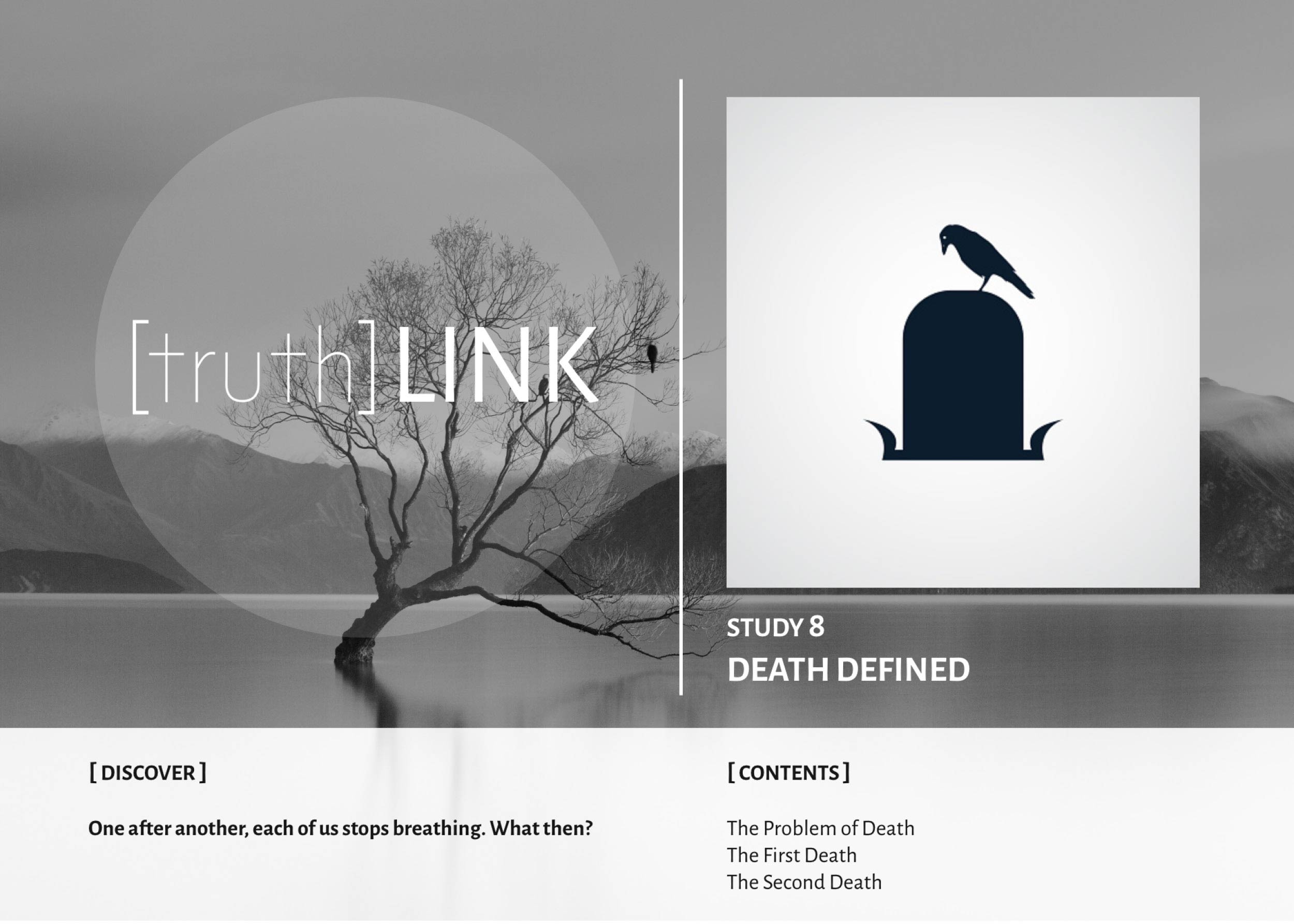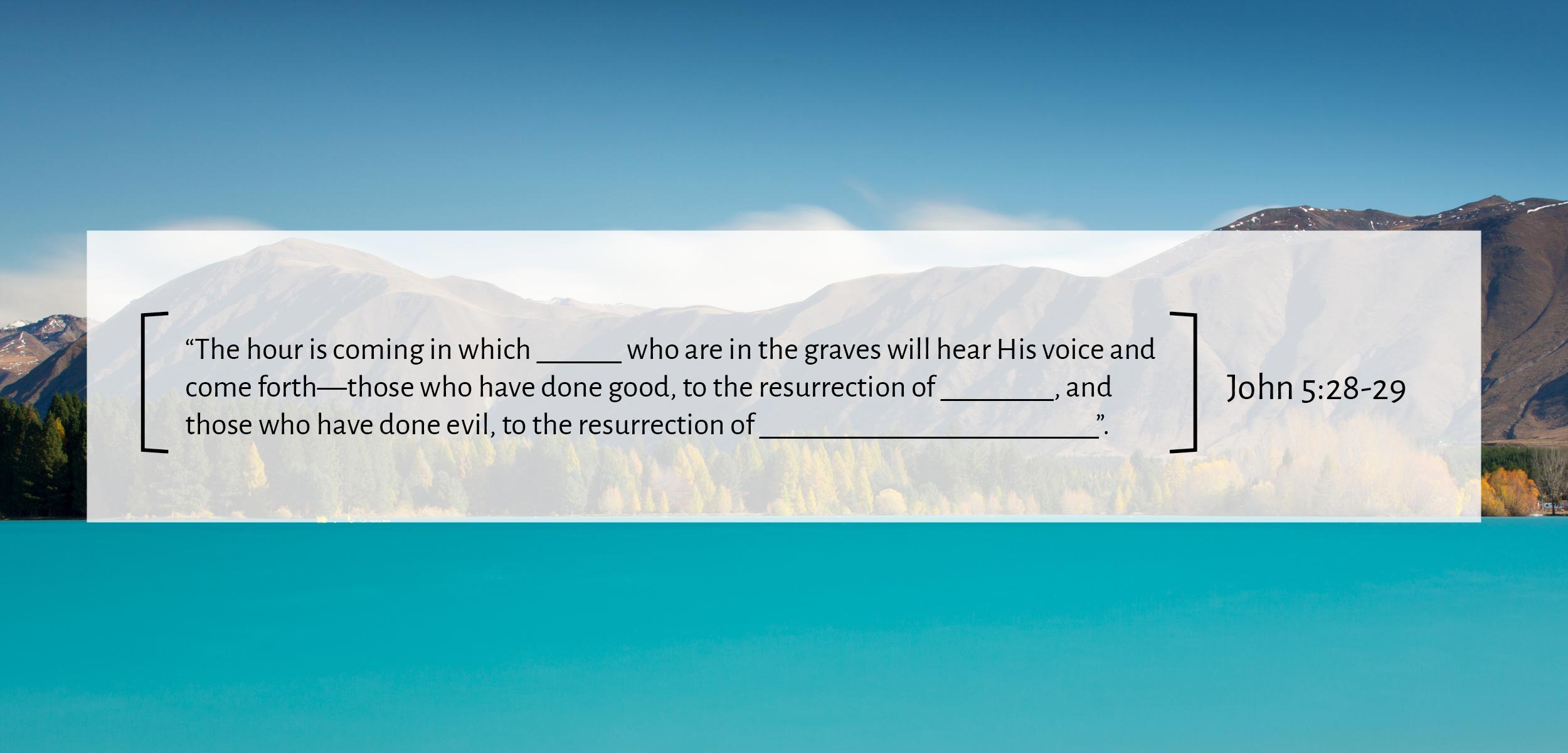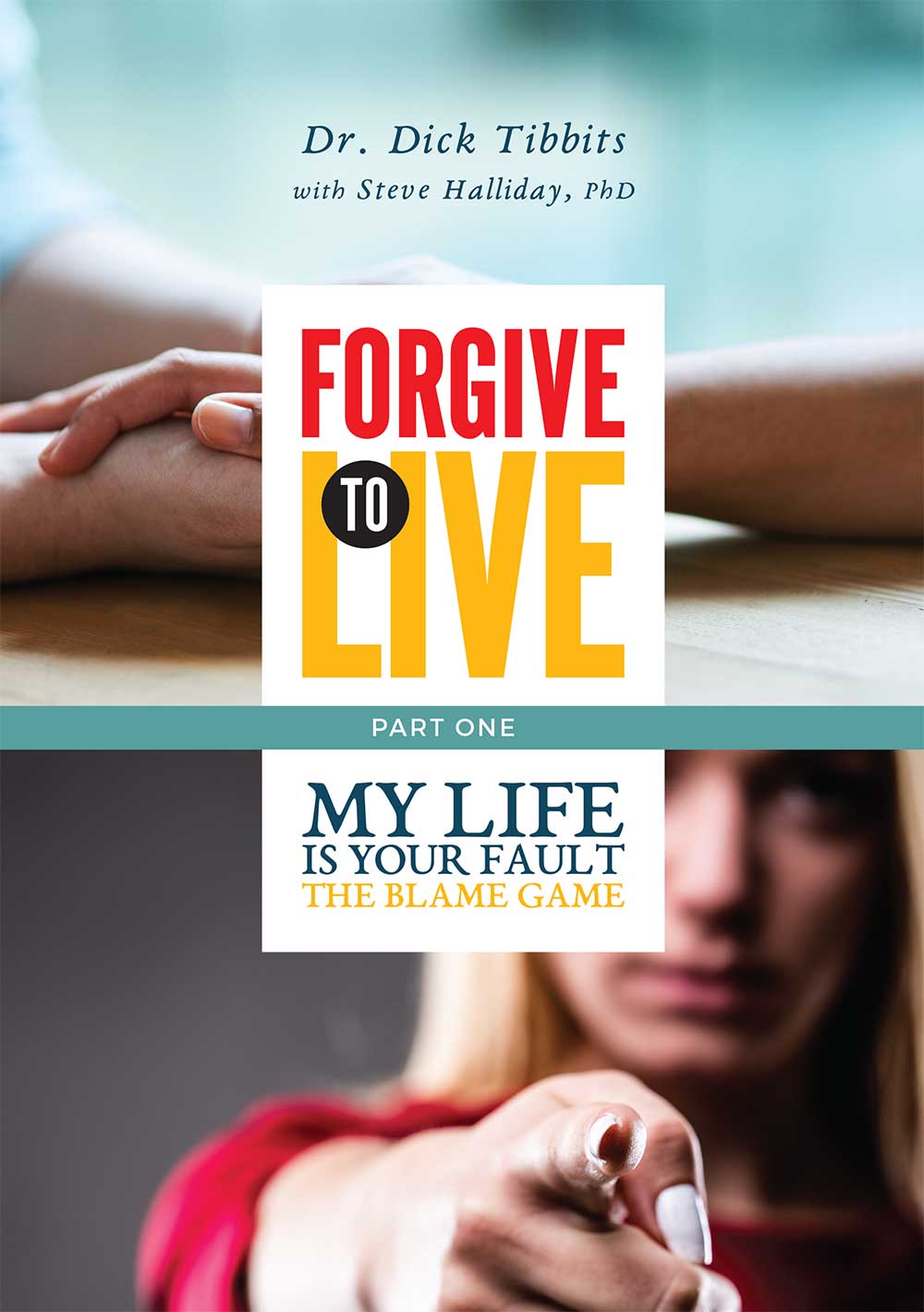
The First Death
A little boy took a shortcut through a cemetery on his way home from school one day. A particular tombstone stopped him in his tracks. The epitaph offered a taunting message: “As you are now so once was l, as I am now you soon will be, so prepare yourself to follow me.” The little boy took a crayon from his bag and wrote on the stone, “To follow you I’m not content, until I know just where you went.”
Death is the most intimidating mystery that confronts us as human beings. We can’t help but wonder if this life is all there is. All of us ask the question at some point, “What happens when we die?” The answer offered in the Bible is astoundingly clear and filled with promise.
First of all, Scripture teaches that there are two kinds of death:
“He who overcomes shall not be hurt by the ____________ _________” (Revelation 2:11).
“Blessed and holy is he who has part in the first resurrection. Over such the ____________ _________ has no power” (Revelation 20:6).
If there is a “second death,” it logically follows that there must be a first death. Let’s explore both.
Carefully read and discuss Luke 8:52-53 and John 11:11-26 to clearly define the first death. From these passages answer the following three questions:
What is the word Jesus used to define the state of the dead? ________.
When did Martha expect Lazarus to be resurrected?__________________.
What title did Jesus claim for Himself? “I am the __________ and the __________.”
Okay, so death is like “sleep” and we can expect to be awakened, resurrected, from death at “the last day.” But let’s dig deeper to fill out our understanding of the first death by allowing Scripture to answer a series of questions for us:
How much do the dead know? Ecclesiastes 9:5-6 _______________.
Do the dead have any consciousness of God? Psalm 6:5; 115:17 _________.
When a person dies, what happens to their thoughts? Psalm 146:3-4 (see KJV on this one) __________.
Do the dead return to haunt their houses? Job 7:9-10 ____________.
Since it is clear that the dead are unconscious and therefore cannot communicate with the living, it follows that those who think the dead are communicating with them are not actually encountering their deceased loved one. Who, then, are they encountering in these supernatural experiences?
“When you come into the land that the Lord your God is giving you, you shall not learn to follow the abominable practices of those nations. There shall not be found among you anyone who burns his son or his daughter as an offering, anyone who practices divination or tells fortunes or interprets omens, or a sorcerer or a charmer or a medium or a necromancer or one who inquires of the dead, for whoever does these things is an abomination to the Lord. And because of these abominations the Lord your God is driving them out before you” (Deuteronomy 18:9-12, ESV).
Notice in the above passage that necromancy, or communication with “the dead,” was one of the abominable practices of the pagan nations. Also notice that necromancy is included in a list practices that includes human sacrifice and other occult activities. This is super significant because the Bible tells us that the “gods” that led the pagan nations in these practices were actually “demons,” or fallen angels, masquerading as gods (Deuteronomy 32:16-17, 21; Psalm 106:36-38). It is clear, then, that the reason God forbids necromancy is because (1) it is impossible to communicate with the actual dead since the they have no consciousness and because (2) “the dead” we may think we are communicating with are actually demons pretending to be our deceased loved ones.
All of this makes perfect sense in the light of the fact that Jesus described the state of the dead with the word “sleep.” In fact, the Bible uses the word “sleep” 54 times to describe the condition of the dead. When someone dies, we are exactly right when we say, “Rest in Peace” (R.I.P.), because they are, in fact, in an unconscious state of rest similar to sleep.
The Second Death
What, then, is the second death by contrast to the first? Jesus tells us the basic difference between the two in Matthew 10:28:
“Do not fear those who killed the ________ but cannot kill the ________. But rather fear Him who is able to __________ both ________ and ________ in hell.”
So the first death is merely the death of the body, but not the soul, whereas the second death involves the destruction of both body and soul. But what, exactly, does this mean?
The Greek word here translated “soul” is psyche, from which we get words like psychology and psychiatric. “Soul” is not the best translation. Mind or even whole person would better convey the idea. It refers to what the Bible elsewhere calls, “the inner man” (Ephesians 3:16) and “the spirit of your mind” (Ephesians 4:23). The first death is the common physical death all human beings die. The second death, by contrast, is the complete destruction of the whole person on both the physical and the psychological levels rendering those who suffer the second death completely non-existent. When a person dies the first death, the Bible says this happens:
“Then the dust will return to the earth as it was, and the spirit will return to God who gave it” (Ecclesiastes 12:7).
The “dust” refers to the body, which returns to the earth as organic matter after the first death. The “spirit” that returns to God is what Jesus called the “soul” (the psyche), or the total content of the person’s inner being: personality, thoughts, feelings, motives— everything that defines the unique identity and moral character of the individual. We’ve already discovered that there is no ongoing consciousness in death, so the “spirit” that “returns” to God when a person dies is simply preserved by God in an unconscious state awaiting the resurrection, at which point God reconstitutes the physical body with the spirit, at which point conscious life resumes.
Now notice this crucial statement by Jesus regarding the resurrection:

Clearly, then, every person who has ever died the first death will be resurrected, both the good and the evil. The good will then go on to live eternally with Christ. “Over such the second death has no power” (Revelation 20:6). The wicked, on the other hand, will be raised to “condemnation” – not condemnation in the simplistic sense of fingers being pointed at them, but rather, the condemnation of the final judgment, at which point they will face their life’s record and experience in the psyche all the “condemnation” inherent in their sins.
Condemnation is, in fact, a psychological experience rather than a physical one. It happens in the mind. When the apostle Paul described the final demise of those who are incorrigibly evil, he said they will experience “indignation and wrath, tribulation and anguish, on every soul (psyche) of man who does evil” (Romans 2:8-9). In other words, the second death! The psychological weight of their “condemnation” will utterly crush them from the inside out.
In our next study we will discover that Jesus voluntarily suffered this very experience for us when he hung on the cross and “tasted death for everyone” (Hebrews 2:9). He endured the full, horrific reality of our sin and shame upon His conscience as if He were the guilty one and, thus, He conquered the second death on our behalf.
DISCUSS THE NATURE OF GUILT AND THE EFFECT IT HAS ON THE MIND. WHAT WOULD IT BE LIKE FOR A HUMAN BEING TO SUDDENLY EXPERIENCE THE TOTAL CONSCIOUS REALITY OF ALL THEIR SINS?
In summary, every person dies the first death, at which point the body returns to the earth and the spirit returns to God to be preserved in a sleep-like state for the resurrection. When the righteous are resurrected, they go on to live eternally with God. When the wicked are resurrected, they experience the full conscious reality of their guilt and are eternally destroyed, both body and soul. (We will explore the final demise of the wicked in greater detail in a future study.)
[CONNECT]
In God’s heart there is complete forgiveness for each of us. We can either hold on to our guilt or we can embrace God’s mercy and be restored to innocence before Him.
Every selfish act a human being commits imposes guilt upon the conscience. Guilt is debilitating because we are not wired to handle it. If the guilt of our sins is not offloaded from the conscience by repentant acceptance of God’s forgiveness, it remains as an psychological weight in the subconscious mind to be reckoned with in the final judgment: “For we must all appear before the judgment seat of Christ, that each one may receive the things done in the body, according to what he has done, whether good or bad” (2 Corinthians 5:10).
God’s desire for each of us is that we would be liberated from our sin and guilt now, to be completely healed and set free from it all. “He has delivered us from the power of darkness and conveyed us into the kingdom of the Son of His love, in whom we have redemption through His blood, the forgiveness of sins” (Colossians 1:13-14). While all of us have failed, not one of us need bear the burden of our guilt and suffer the second death. Jesus “tasted death for everyone” (Hebrews 2:9). As our voluntary Substitute, He experienced the dark horror of our guilt so that we need not live another moment in bondage to it. We have the privilege of standing perfectly forgiven through Christ.
[EXPERIENCE]
I put my complete trust in Jesus as my personal Savior and I accept God’s forgiveness through Him.
As I receive God’s forgiveness, I believe that I live under His favor in completely innocent before Him. This promise is for me: “Blessed is he whose transgression is forgiven, whose sin is covered. Blessed is the man to whom the Lord does not impute iniquity, and in whose spirit there is no deceit” (Psalm 32:1-2). Thank You, God, for Your pardoning love!
Phone 1300 300 389









